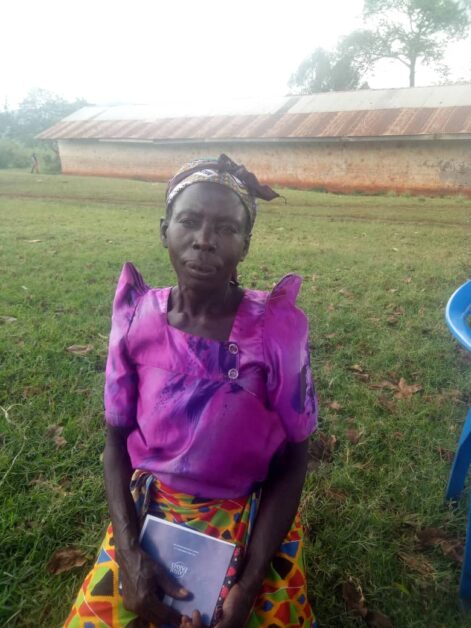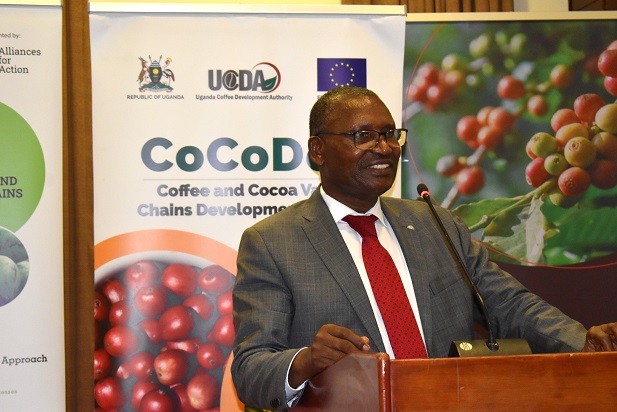BY EMMA ONYANGO
For over three decades, Avako Evasi and her family depended primarily on tobacco as their cash crop. The mother of two admits that despite the yields she got, the crop was a very difficult one to cultivate, and even the money realized from its sales was barely enough to sustain the household.
According to her, the crop requires a lot of care, especially in the early growth stages as this ultimately determines the final selling price post-harvest. Even for farmers in suitable ecological agro-ecological areas, tobacco is expensive to grow, with high up-front costs that smallholder farmers may not be able to cover. For example, high costs of production of flue-cured tobacco are a barrier to most cash-poor smallholders. This means the final selling price reduces drastically for one who presents what is deemed ‘low grade’ tobacco. To be able to earn more, Avako had to invest more.
While her family realized the short term economic benefits from growing and selling tobacco, Avako was unknowingly depleting the nutrients of her soil. As tobacco is typically grown in monoculture, the nutrients it depletes from the soil are unable to be replenished by other crops, requiring the use of costly fertilizers and other farm inputs, which many tobacco farmers cannot afford.
More specifically, according to an article titled ‘Environmental health impacts of tobacco farming: a review of the literature’ and published in the National Library of Medicine, tobacco crops deplete soil nutrients by taking up more nitrogen, phosphorus and potassium than other major crops. This depletion is compounded by topping and de-suckering plants, which increase the nicotine content and leaf yields of tobacco plants.
Over multiple seasons, this nutrient depletion would reduce the ability of her land to provide a proper foundation for growth, ultimately resulting in lower yields, less income, and her family becoming food insecure.
Avako, now aged 53, says that as a result of the reducing yields and ultimately income, her family decided to supplement their cultivation by introducing food crops into their seven acres. In the beginning, these crops were only meant to sustain the family as they awaited sales from their cash cow, tobacco.

However, as time went by, the family began to realize income from the cultivation of crops such as maize, beans and groundnuts. While the coinage from these wasn’t sizable, it proved that with more effort, there was a possibility of earning more. Just like many tobacco farmers, Avako needed someone to guide them through the transition.
Agilis Partners has commenced the training of over 3,000 tobacco farmers on conservation farming practices in Western and Central Uganda. The aim is to transition them from tobacco farmers to food producers who rotate their crops in a way that benefits the environment and their land’s soils. This transition also serves to boost Uganda’s economy by increasing local demand rather than international demand by filling the market with food products that are consumed domestically. Avako is one of the participants and her belief is that with this change in her farming practices, she will be able to afford to complete the construction of her three-roomed house.
By helping farmers such as Avako transition from cultivating export-driven crops grown in monoculture to import substitution crops grown sustainably, Agilis is not only helping the country conserve the soil for future generations, but also increasing the revenue streams of the individual farmers.
Additionally, Agilis is not only supporting the former tobacco farmers to improve their livelihoods – we are introducing them to a highly nutritious crop with massive import substitution benefits. This is also helping the country in the pursuit of sustainable local economic development programs.
Uganda’s National Development Program (NDP) III highlights the Agro-industrialization programme as its key undertaking in the quest to fast track the country’s leap into middle income status. The program aims to increase commercialization and competitiveness of agricultural production and agro processing. Key results include: increasing the agricultural sector growth rate, increasing labour productivity in the agro-industrial value chain, creating jobs in agro-industry, and increasing the proportion of households that are food secure.
These are issues that Agilis has taken into consideration while developing the farmer training manuals.
The author works with Agilis Partners, an enterprise whose mission is to empower Ugandans to feed Africa.





